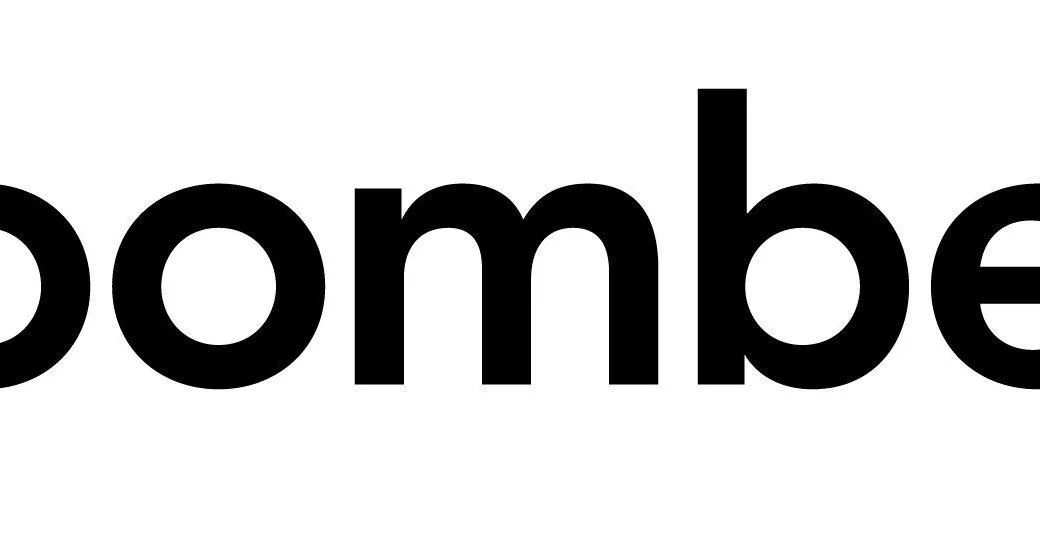Copyright ghanamma

Clydestone Ghana PLC delivered the kind of headline revenue growth that typically excites investors, nearly doubling sales to GHS 22.9 million for the nine months ending September 2025. Yet behind that impressive 94% top line surge lies a troubling reality: net profit collapsed by 53%, dropping from GHS 1.18 million to just GHS 551,000 as the fintech company’s aggressive expansion strategy consumed margins and generated massive cash outflows. The stark contrast between revenue growth and profit decline tells a story increasingly common in technology companies chasing market share at the expense of profitability. Clydestone’s third quarter results, released to the Ghana Stock Exchange, reveal a business stretching itself thin as it opens new service points across Ghana while simultaneously managing operations in Nigeria and Kenya. What makes these numbers particularly concerning is the margin compression across every level of operations. Gross profit margin shrank 8.1 percentage points to 29.5%, meaning the company earned significantly less on each cedi of sales compared to last year. Operating profit margin suffered an identical 8.1 point contraction to just 7.2%, indicating the problem extends beyond procurement challenges into fundamental business model questions. Cost of sales exploded 119%, outpacing the already impressive 94% revenue growth. This dynamic suggests Clydestone is either winning business through aggressive pricing that leaves little room for profit, or facing input cost pressures it can’t pass along to customers. Operating expenses nearly doubled, growing 99% as the company invested heavily in infrastructure, personnel, and market development across multiple geographies. Finance costs tell another part of the story. Interest expenses surged 178% to GHS 882,000, reflecting the debt burden financing this expansion. For a company generating operating profit of just GHS 1.64 million, interest costs eating up more than half that amount creates uncomfortable financial arithmetic that limits strategic flexibility. The balance sheet reveals where much of this expansion capital went. Trade receivables jumped 79% to GHS 5.0 million, a dramatically faster increase than the revenue growth supposedly generating those receivables. This massive buildup in amounts owed suggests customers are taking longer to pay, or Clydestone is offering generous credit terms to win business, neither scenario boding well for near term cash generation. Cash holdings paint perhaps the starkest picture. The company’s cash balance plummeted 63% from GHS 8.74 million at year end 2024 to just GHS 3.20 million by September. That GHS 5.5 million drawdown funded operations that generated a negative GHS 4.23 million in operating cash flow, a dramatic reversal from last year’s positive GHS 5.54 million. Working capital changes consumed GHS 6.28 million during the period, driven primarily by the receivables buildup and inventory increases. When a growth company can’t convert sales into cash, it typically signals either aggressive revenue recognition, weak credit controls, or customers struggling to pay. None of these scenarios inspire confidence. Yet paradoxically, Clydestone’s stock has been the Ghana Stock Exchange’s best performer in 2025. Shares trading at GHS 0.17 as of mid October represent a stunning 467% gain year to date, ranking the stock first on the GSE despite these deteriorating fundamentals. This disconnect between operational reality and market enthusiasm creates cognitive dissonance for anyone analyzing the company objectively. The stock’s performance likely reflects investors betting on Ghana’s fintech growth story rather than current profitability. Clydestone’s positioning as a payment processing infrastructure provider connecting banks, mobile money platforms, and merchants puts it at the center of Ghana’s ongoing digital payment revolution. The company serves 19 African banks as a principal acquiring member of UnionPay International and provides cheque truncation systems to 12 leading Ghanaian banks. Management’s strategy appears focused on capturing market share while Ghana’s digital payment ecosystem expands rapidly. The company’s operations in payment processing, transaction switching, instant card issuance, and KYC and AML compliance systems address genuine needs as Ghana’s economy continues digitalizing. The question is whether securing market position today justifies the financial strain evident in these results. Clydestone’s expansion into cities like Kumasi, Tamale, and Takoradi aligns with broader economic trends seeing regional cities gain importance. These secondary markets offer growth potential as financial services penetration deepens beyond Accra and as mobile money adoption continues its explosive trajectory. However, establishing presence in these markets requires upfront investment that won’t generate returns immediately. The company’s 2024 annual report, released earlier this year, had shown revenue surging to GHS 23.92 million from GHS 7.34 million in 2023, with net profit reaching GHS 3.95 million. Those results demonstrated the company could grow profitably when conditions aligned properly. The nine month 2025 numbers suggest the challenges intensified as expansion accelerated. Industry context matters here. Ghana’s fintech sector faces intense competition as both local startups and international players vie for market share in payment processing and digital financial services. Margins compress when multiple providers chase the same customers with similar offerings. Clydestone’s first mover advantage as Ghana’s first ICT company to list on the stock exchange provides brand recognition but doesn’t guarantee pricing power. The receivables situation deserves particular scrutiny. When trade receivables grow 79% while revenue grows 94%, and the absolute increase in receivables (GHS 2.2 million) approaches 20% of total revenue (GHS 22.9 million), it raises questions about revenue quality. Either customers are taking dramatically longer to pay, or accounting policies around revenue recognition merit examination. For investors who’ve enjoyed the 467% stock price gain, these financial results create difficult questions about valuation sustainability. At current prices, the market seems to be betting on future potential rather than present performance, a familiar pattern in growth technology stocks but one that requires eventual vindication through improved fundamentals. The company’s liquidity ratios appear superficially healthy, with current and quick ratios around 1.39 and 1.33 respectively. However, these metrics prove somewhat misleading given the composition of current assets. Strip out the questionable receivables, and liquidity looks far more constrained. The GHS 3.2 million cash balance must fund ongoing operations while the company waits for customers to pay outstanding invoices. Management faces tough choices heading into the final quarter of 2025. Continuing the current growth trajectory risks further cash depletion and potential liquidity crisis. Pulling back on expansion to prioritize profitability could sacrifice market share gains competitors would eagerly claim. Threading this needle requires operational excellence the nine month results don’t clearly demonstrate. The competitive landscape adds complexity. As Ghana’s digital payment infrastructure matures, customers gain leverage to demand better pricing and terms. Banks and large merchants can play providers against each other, compressing margins industry wide. Clydestone’s technical capabilities and regulatory compliance certifications provide differentiation, but whether these translate into sustainable competitive advantage remains unclear. Earnings per share dropping from GHS 0.0346 to GHS 0.0162 means shareholders now own claims on less than half the per share profits compared to last year. The market appears willing to overlook this deterioration given the growth story, but history suggests investors eventually demand profitability from even the most exciting growth companies. The company’s commitment to Environmental, Social, and Governance principles, including coastal cleanup campaigns and gender equity initiatives in tech, demonstrates corporate citizenship but doesn’t address the fundamental financial sustainability questions these results raise. ESG initiatives matter for long term brand building but require profitable operations to fund sustainably. Looking ahead, Clydestone’s path forward likely requires addressing the receivables crisis as priority one. Converting outstanding customer obligations into cash would simultaneously improve liquidity, validate revenue recognition practices, and demonstrate operational competence. Without progress here, questions about business model viability intensify. The company’s regional expansion could prove prescient if Ghana’s secondary cities develop as expected and if Clydestone establishes market leading positions before competition intensifies. Digital payment adoption in cities like Kumasi and Tamale lags Accra significantly, creating genuine growth opportunities for providers willing to invest early. Whether Clydestone’s financial resources can sustain presence until these markets mature remains the critical question. For the Ghana Stock Exchange, Clydestone’s performance adds another chapter to the complex relationship between investor enthusiasm and underlying fundamentals. The stock’s 467% gain demonstrates the exchange’s capacity for spectacular returns but also highlights how disconnects between price and performance can persist when growth narratives capture imagination. As 2025’s final quarter unfolds, attention turns to whether Clydestone can demonstrate improved cash collection, margin stabilization, and more balanced growth that doesn’t sacrifice profitability entirely. The company’s November and December performance will prove particularly telling, as year end typically sees improved collections and business activity that could meaningfully improve full year results. The fintech sector’s importance to Ghana’s economic development means Clydestone’s success or struggles carry implications beyond individual shareholders. The company’s ability to deliver secure, reliable payment infrastructure affects thousands of businesses and millions of consumers relying on digital financial services. That broader context makes the operational challenges evident in these results something worth watching closely. For now, Clydestone presents a classic growth versus profitability dilemma. The company proved it can grow revenue dramatically but hasn’t yet shown it can do so sustainably. The market’s enthusiastic response suggests many investors believe profitability will eventually follow once scale advantages emerge. These third quarter results test that optimism severely, creating a fascinating case study in how investors value present pain against future potential in Ghana’s dynamic fintech landscape.



